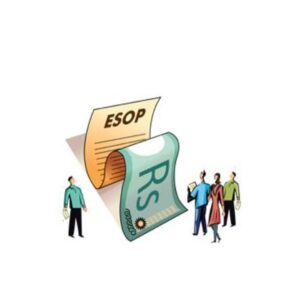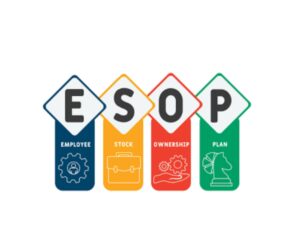
![]()
User Intent
Users searching for this topic are likely employers, HR professionals, or employees looking to understand the differences between Employee Stock Ownership Plans (ESOPs) and bonuses. They may want to determine which is more beneficial in terms of financial growth, motivation, and long-term value.
Introduction
When it comes to rewarding employees, companies often consider either Employee Stock Ownership Plans (ESOPs) or bonuses. While both are incentives designed to enhance employee satisfaction and performance, they work differently. ESOPs provide long-term financial benefits and a stake in the company, whereas bonuses offer immediate monetary rewards. So, which one is better? This article will provide a step-by-step comparison to help you decide.
Definition
What is an ESOP?
An Employee Stock Ownership Plan (ESOP) is a program that grants employees ownership stakes in the company. These shares are allocated over time, allowing employees to benefit from the company’s growth and profitability.
What is a Bonus?
A bonus is an extra payment given to employees based on performance, company profits, or festive occasions. Bonuses are typically paid in cash and do not involve company equity.
Application
How ESOPs Work
- Allocation of Shares: Employees receive company shares as part of their compensation.
- Vesting Period: There is usually a period before employees gain full ownership of their shares.
- Payout: Employees can sell shares after a certain duration, typically upon retirement or resignation.
How Bonuses Work
- Performance-Based Bonuses: Paid based on individual or company achievements.
- Fixed Bonuses: Provided during special occasions like festivals.
- Disbursement: Given as a lump sum in cash or other forms such as gift cards.
Benefits
Advantages of ESOPs
- Employee Engagement: Encourages long-term commitment as employees have a stake in the company’s success.
- Wealth Creation: Employees build wealth through share appreciation.
- Tax Benefits: ESOPs offer tax advantages for both employees and employers.
- Company Stability: Reduces attrition as employees tend to stay longer.
Advantages of Bonuses
- Instant Gratification: Employees receive immediate financial rewards.
- Performance Booster: Encourages short-term productivity improvements.
- Flexible Structure: Can be adjusted based on company performance.
- No Dilution of Equity: Unlike ESOPs, bonuses do not reduce the company’s ownership percentage.
Limitations
Disadvantages of ESOPs
- Delayed Benefits: Employees may not see immediate rewards.
- Market Risks: Share value fluctuations affect returns.
- Administrative Costs: Managing ESOPs can be complex and costly.
Disadvantages of Bonuses
- Short-Term Motivation: Employees may not stay loyal after receiving bonuses.
- Tax Burden: Bonuses are taxable at higher rates.
- Financial Strain on Companies: Large bonus payouts can impact cash flow.
Comparative Table
| Criteria | ESOPs | Bonuses |
|---|---|---|
| Time Horizon | Long-term | Short-term |
| Financial Benefit | Potential wealth creation | Immediate cash benefit |
| Tax Implications | Tax benefits for both employer and employee | Higher tax burden |
| Employee Motivation | Enhances loyalty and engagement | Encourages short-term performance |
| Company Impact | Strengthens company culture and stability | Immediate financial strain possible |
| Complexity | Requires administrative setup and compliance | Simple and easy to implement |
Conclusion
Both ESOPs and bonuses serve different purposes. If a company aims for long-term employee retention and wealth creation, ESOPs are the better choice. However, if the goal is to provide quick financial motivation, bonuses work best. Companies must align their strategy with their business objectives and employee expectations to make the right choice.
Frequently Asked Questions (FAQs)
1. Are ESOPs better than cash bonuses?
It depends on the objective. ESOPs are beneficial for long-term growth, whereas bonuses provide immediate financial rewards.
2. Do ESOPs have tax advantages?
Yes, ESOPs offer tax benefits to both employees and employers, unlike bonuses which are fully taxable.
3. Can a company provide both ESOPs and bonuses?
Yes, companies often offer a combination of both to balance short-term and long-term incentives.
4. What happens if an employee leaves before ESOPs vest?
Employees may lose unvested shares, depending on company policies.
5. Are ESOPs riskier than bonuses?
Yes, as ESOPs depend on company performance, while bonuses offer guaranteed monetary compensation.

For further details access our website https://vibrantfinserv.com/
To Visit https://www.incometax.gov.in